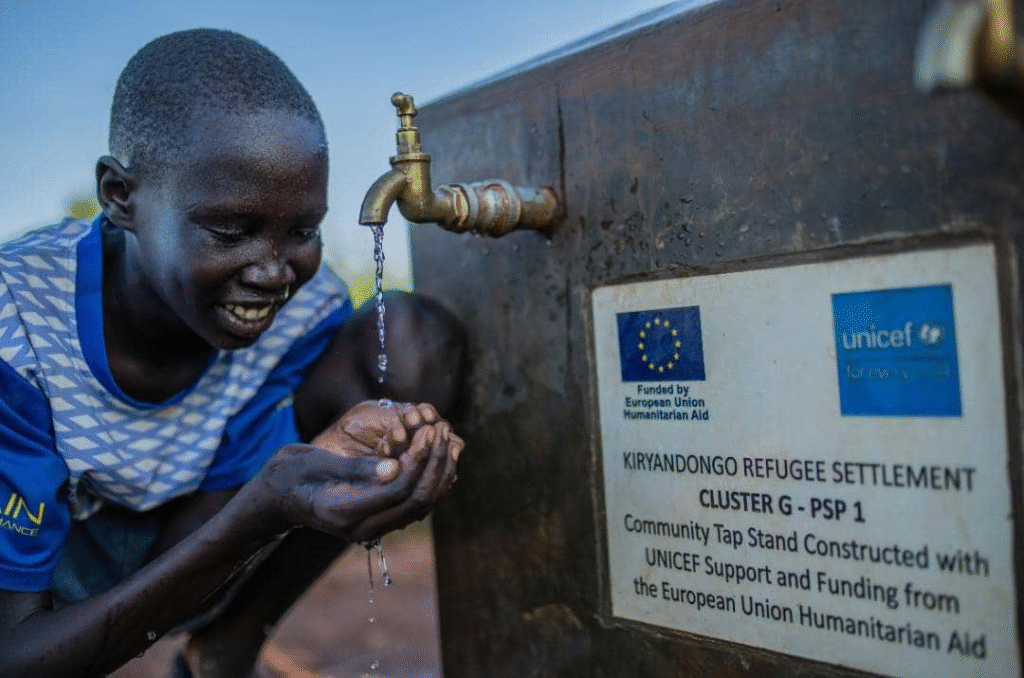
For thousands of refugees in Kiryandongo, fetching water is no longer a dawn to dusk struggle. What was once a three-kilometre trek to a crowded borehole has been replaced by the simple turn of a tap, thanks to a new partnership between the European Union (EU) and UNICEF that has transformed access to safe water for more than 165,000 refugees and host community members.
The initiative, jointly funded by the EU Civil Protection and Humanitarian Aid (ECHO) and implemented by UNICEF in partnership with the Lutheran World Federation (LWF), has delivered two states of the art solar hybrid piped water systems serving Clusters C and G within Kiryandongo Refugee Settlement.
Constructed between July and October 2025, the systems use a dual power model, solar energy by day and diesel backup at night, to pump water from deep wells to a 108-cubic-metre reservoir perched on a hill, before channelling it through 22 public standpipes across the settlement. Together, the pipelines stretch over seven kilometres, bringing reliable water within walking distance for thousands of families.
For Habib Ahmad, a refugee from Sudan who arrived early this year, the change is life-altering.
“I used to walk three kilometres to fetch water, and it would take me hours,” he said. “Now I walk just a few metres, in 10 or 15 minutes I am done. It has changed everything for us.”
Before the project, residents were surviving on about 9 litres of water per person per day, far below the 20-litre international humanitarian standard. With the new systems operational, daily supply now meets or exceeds that benchmark, a critical step toward better hygiene, nutrition and health outcomes.
The shift also promises long term efficiency; by reducing the cost and carbon footprint of water trucking, the solar-hybrid design supports both climate resilience and sustainability in humanitarian service delivery.
Beyond numbers, the project is freeing up time and dignity. Women and children, who traditionally shoulder the burden of water collection, can now devote more hours to education, business and community life. Health centres within the settlement are also benefiting from consistent water supply, cutting down risks of infection and waterborne diseases.
Speaking at the launch, Liam Kelly, Head of EU Humanitarian Aid in Uganda, described the project as a model for green humanitarian action.
“This system is proof that sustainable technology can save lives while protecting the environment. It represents the European Union’s commitment to greening humanitarian aid in Uganda.”
As the settlement continues to expand, stakeholders say community ownership and maintenance will be key to keeping the taps running. LWF teams are training local technicians to manage repairs and ensure the system’s sustainability beyond the initial project period.